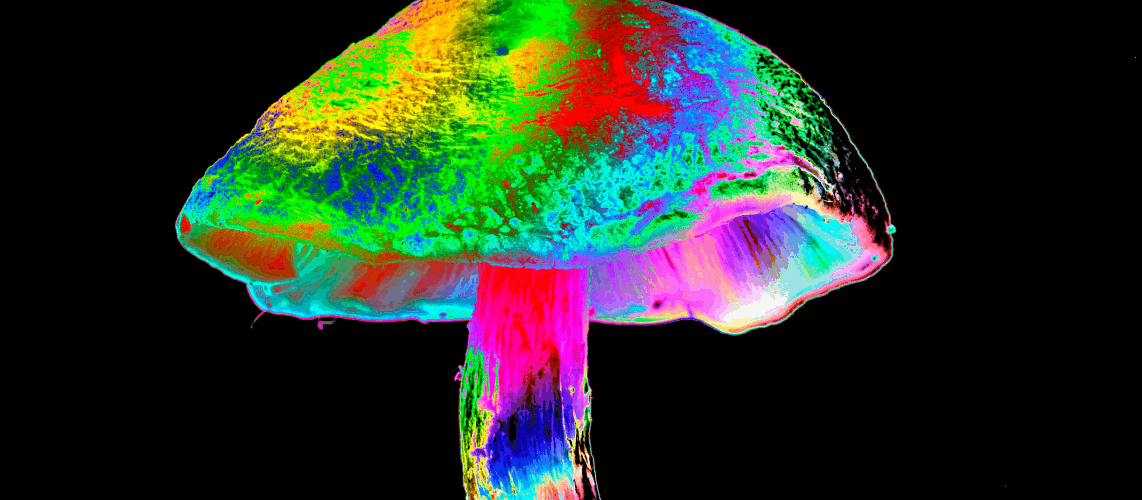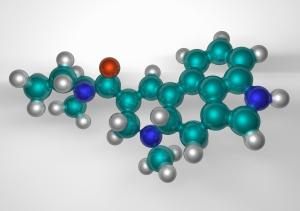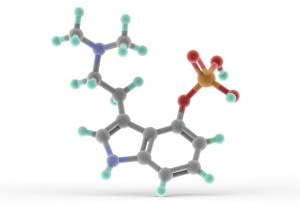Overlooked for decades, the study of psychedelic treatments and the development of second-generation drugs has increased in recent years.

Image Credit: Getty Images
In 1963, Bill Richards of Johns Hopkins began his research on the use of psychedelic substances to treat depression, addiction, and the psychological distress associated with terminal cancer, finding that these treatments could be a viable option for suppressing the symptoms of certain mental illnesses.
Psychedelics were notorious for their part in the counterculture movement in the 1960s and the uncontrolled use of drugs such as LSD and psilocybin mushrooms. By the 1970s, the government had passed legislation that restricted research into psychedelic treatments.
Researchers, however, circled back to the study of psychedelics for mental illnesses several years ago, in part because the mental health treatments available were often ineffective, especially for particular populations. Soon after, the pharmaceutical industry began investing in the development of products derived from psychedelics.
The exploration of these psychedelic medicines may be one of the most transformative developments in psychiatry. Research provides increasingly more evidence that these molecules can produce immediate and enduring beneficial effects for a wide variety of mental health issues, and even in treating neurodegenerative diseases. Efforts across disciplines have begun to bring these new drugs to market and the US psychedelics market is expected to grow by 16.3% by 2026.
Improvements to mental illness treatments
There is robust evidence that psychedelic treatments will be most effective for major depressive disorder, manic depressive disorder, post-traumatic stress disorder (PTSD), bipolar disorder, and generalized anxiety disorders. However, they may also be of great benefit to those with addictions from alcoholism to binge-eating.

Molecular model of LSD. Image Credit: Charles River Laboratories
Researchers are also endeavoring to better understand the function of such drugs, as the mechanisms of action are not yet fully comprehended. Understanding the main targets of such drugs and binding affinities in the brain will help scientists understand how they could be applied to diseases such as Parkinson’s and Alzheimer’s, which often include symptoms of depression.
Current therapies
Some of the treatment options available at present for these disorders include SSRIs (selective serotonin reuptake inhibitors) and tricyclic antidepressants for depressive disorders and antipsychotics for bipolar disorders. Psychotherapy is encouraged to complement prescribed medication. However, it is common that people self-manage symptoms with strategies that actually exacerbate symptoms through the use of alcohol or drugs.
These treatments can be effective, but many people do not benefit from these therapies or benefits may be short-lived. Treatment-resistant depression refers to patients who do not see benefits from the therapies currently available. There are also both long- and short-term side effects to such drugs which may outweigh the benefits of taking them. It usually takes six to eight weeks for patients to start feeling the positive effects of antidepressants but it is common for patients to experience negative side effects in this time, such as weight gain, tiredness and trouble sleeping, decreased sex drive, dry mouth, and so on.
These medications also can bring about a feeling of being numb, where normal life feels less stressful or upsetting but also feels flat or unexciting. Patients may feel the need to take other medications to balance the side effects of the primary medication, causing complications and extra side effects which affect their daily lives.
Increasing interest in psychedelics

Molecular model of psilocybin. Image Credit: Charles River Laboratories
In the 1990s, development efforts accelerated when new generations of scientists began to re-examine potential uses of existing substances while utilizing contemporary methods and procedures. The recognition of a new psychedelic treatment for depression called Spravato prompted researchers to publicize their work into similar therapies. Ketamine, a drug of abuse that has historically been used as an anesthetic, has been shown to be valuable in treating depression. LSD (lysergic acid diethylamide) and MDMA (3,4-methylenedioxymethamphetamine) have also been studied for their therapeutic potential for many years.
Researchers have known for a long time that psychedelics may have potential in the treatment of mental illnesses, but the process of evidencing this has been slow. One drug in particular, psilocybin, has been incredibly popular in clinical trials: it has almost no long-term side effects and can provide both immediate relief from symptoms of depression and long-term relief after one dose and a psychotherapeutic session.
Psilocybin also has an excellent safety profile, much better than any of the drugs currently available on the market. Currently, researchers are developing ways to remove the hallucinogenic effects of such drugs while preserving their therapeutic effects. In the last half century, as more investors begin to take the option of psychedelic treatments more seriously, such drugs have moved from being only associated with counterculture to being incredibly popular within mainstream medicine.
Similarly, MDMA was previously used in clinical settings in the US, but it became a Schedule I drug of abuse in 1970 and thus could no longer be prescribed for mental health disorders. MDMA may be the next to the market, and it is currently being used in many clinical trials supported by the US National Institutes of Health. MDMA was designated as a breakthrough therapy Investigational New Drug Application for PTSD; the FDA agreed to a special protocol which expedited Phase III clinical trials.
Are psychedelics still taboo?
The word psychedelic is still largely associated with the counterculture movement of the 1960s, and many psychedelics are still designated Schedule I drugs by the Drug Enforcement Agency. In the US, political stigmatization, more than risk, has led to research being impeded by regulatory controls. However, mental health is a global issue, and several other countries are much further ahead in using psychedelic-assisted therapy.
There is now a wealth of data from human trials that indicate the therapeutic potential of psychedelics, and it is becoming harder to ignore the benefits of these drugs.
About Charles River Laboratories
At Charles River, we are passionate about our role in improving the quality of people’s lives. Our mission, our excellent science and our strong sense of purpose guides us in all that we do, and we approach each day with the knowledge that our work helps to improve the health and well-being of many across the globe.
Charles River provides essential products and services to help pharmaceutical and biotechnology companies, government agencies and leading academic institutions around the globe accelerate their research and drug development efforts.
As a fully integrated partner, Charles River can support your research at any point along the drug discovery continuum.
Sponsored Content Policy: News-Medical.net publishes articles and related content that may be derived from sources where we have existing commercial relationships, provided such content adds value to the core editorial ethos of News-Medical.Net which is to educate and inform site visitors interested in medical research, science, medical devices and treatments.